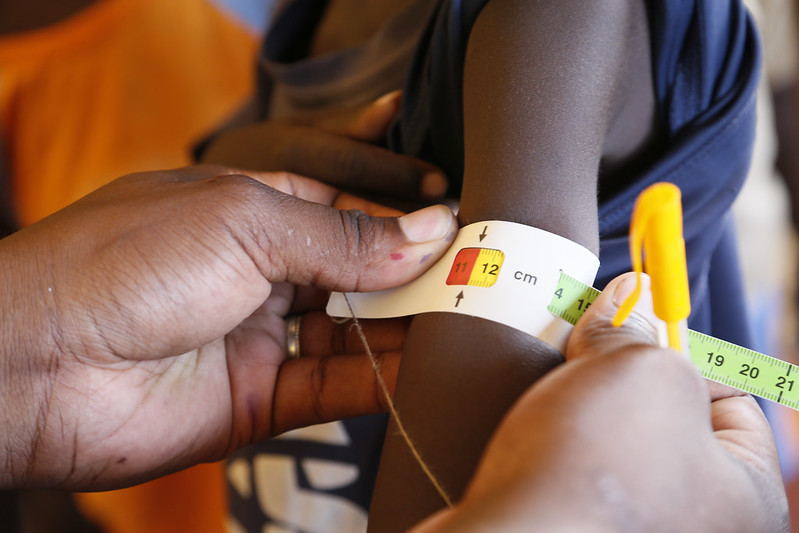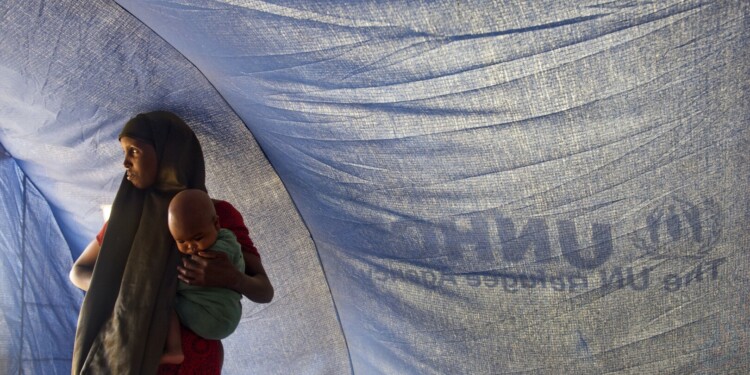Inhabitants of the Horn of Africa are currently preparing to face the most severe drought in the region since 1981.
Last February, meteorologists had told the greater Horn of Africa to prepare for “wetter than average” long rains season, which normally pours from March to May. People were looking forward to them, as the long rains season constitutes a “crucial” moment of the year for agricultural workers who depend on rainfalls to grow crops and rear livestock.
One month into the season, weather agencies had to revise their forecasts: as they continue to register high temperatures, it has become very likely that rains will fail for a fourth consecutive year, pushing the region to the brink of a catastrophic food crisis.
Workneh Gebeyehu, the executive secretary of the Intergovernmental Authority on Development, said: “This, coupled with other stress factors such as conflicts in both our region and Europe, the impact of COVID-19, and macro-economic challenges, has led to acute levels of food insecurity across the greater Horn of Africa.”
The interaction of these negative factors is already known to cause a historically severe food crisis in West Africa where 38 million people are expected to go hungry by June 2022. Droughts in the East and Horn of Africa had already pushed 14 million people to hunger, and the figure could rise to 20 million by the end of the year.
Somalia, Ethiopia, and Kenya count amongst the most affected countries, with Somalia facing a very serious threat of famine. Half a million Kenyans are one step away from disastrous levels of hunger, and malnutrition currently affects 7.2 million Ethiopians.
🔴#Somalia: risk of famine in coming months
🔴#Kenya: half a million people facing emergency levels of hunger
🔴#Ethiopia: 7.2 million people in drought-affected areas wake up hungry every dayExtended drought is fueling hunger across the Horn of Africa: https://t.co/pS9YRTJ7nV
— World Food Programme (@WFP) April 19, 2022
The drought poses a severe threat to East Africans’ livelihoods
These alarming figures principally result from the impact that severe droughts entail on crops and cattle as most of the population in the East and Horn regions depend on agriculture for their livelihoods. As the rains are delayed, crops planted in anticipation of the rainy season fail, and livestock, deprived of pasture, die.
According to Dr Chimimba David Phiri, Subregional Coordinator for Eastern Africa at the Food and Agriculture Organization (FAO), around three million livestock have already died across southern Ethiopia and arid and semi-arid regions of Kenya, and up to 30 percent of households’ herds have died in Somalia since mid-2021.
World Food Programme (WFP) spokesperson Thomson Phiri said: “Farmers have watched their crops shrivel up, wilt and die due to lack of rain… harvests are up to 70 percent below the norm in affected areas.” He added: “Dead animals by the roadside are a common sight – they have not been hit by passing vehicles, but rather died in large numbers from thirst and starvation.”
Scientists believe extreme droughts in the East and Horn of Africa result from human-induced climate change and are likely to intensify in future decades
Meteorologists believe the droughts’ increased frequency and severity result from the cascading effects of climate change on the region, and particularly on the Indian Ocean which is warming at a faster rate compared to the Atlantic or Pacific Ocean.
A 2016 Nature study revealed that human-induced global warming contributes to the increased frequency of severe cyclonic storms over the Arabian sea, part of the west Indian Ocean. These frequent cyclones are precisely the reasons why rains are consistently delayed:
“Whenever we have intense cyclones in the Southwest Indian Ocean, we always prepare for a long drought season in eastern and the Horn regions,” Evans Mukolwe, the former science director at the UN, said. “This is because the cyclones suck much of the moisture depriving the region of the much-needed precipitation. It has been the pattern for decades.”
Based on these facts, the UN humanitarian office recently declared that the current drought “risks becoming one of the worst climate induced emergencies in recent history in the Horn of Africa.”
Related articles: West Africa Hit by Worst Food Crisis in a Decade: 38 Million People Could Go Hungry by June | Earth Day Coming Up: More Financial Efforts To Mitigate Climate Change | Latest UN Climate Report: A Call for Action
War in Ukraine further aggravates the rise of food prices and curbs NGOs’ access to funding
Significant rises in food and water prices are a natural consequence of the rarefication of these resources in the region. However, the war currently unfolding in Ukraine constitute a major aggravating factor as countries in the eastern and Horn regions, particularly Ethiopia and Somalia, depend on wheat from the Black Sea Basin countries. As a result, the cost of a food basket has risen by a staggering 66 percent in Ethiopia, and by 36 percent in Somalia.
The conflict in Europe has also caused fuel prices to soar and shipping costs on some routes to double since last January.
Finally, the Food and Agriculture Organization of the United Nations (FAO) is concerned over the potential low supply of fertilizers from the Black Sea region in the coming months.
On top of destabilizing international market forces, the conflict in Ukraine draws a significant part of international media attention. While such phenomenon is understandable due to the high stakes that this unprecedented situation entails, and as reports of war crimes against Ukrainian civilians multiply, NGOs’ currently working to fight the severe food crises in the western and eastern parts of the African continent struggle to raise much-needed funds.
Dr. Phiri, FAO Subregional Coordinator for Eastern Africa, explains: “We believe the Ukraine crisis has indeed taken some of the lustre from the needs of the Horn of Africa region. It is important for the world that while they are considering the needs of Ukraine, that they also consider the needs for the Horn of Africa.”

Early intervention is vital to avoiding a major humanitarian disaster
“We know from past experience that acting early to avert a humanitarian catastrophe is vital, yet our ability to launch the response has been limited due to a lack of funding to date,” said Michael Dunford, WFP’s Regional Director for Eastern Africa.
During the 2016-2017 drought that struck the Horn of Africa, a famine was avoided thanks to the early scale-up of humanitarian assistance. But as NGOs struggle to raise funds, this year’s drought risks ending up in a catastrophic humanitarian crisis where famine affects millions of people in East Africa.
As global warming worsens, droughts in the greater Horn of Africa are expected to become more frequent and severe, posing a lasting threat to the future of East Africa’s farming populations. Humanitarian intervention coupled with climate change adaptation programmes is key to ensuring that local populations can develop better resistance to droughts and the threat of food insecurity in the decades to come.
“We must act now on a no-regret basis if we want to prevent a humanitarian catastrophe, and we must significantly scale up our investments on resilient food systems,” said Mr. Phiri.
So far, WFP’s appeal for funding last February received less than 4 percent of what was needed. Around $473 million will be necessary over the next sixth month.
FAO also launched a $130 million drought response plan in January to assist 1.5 million people, but only $50 million has been raised to date.
If more funds don’t come in soon, expect a major catastrophe.
Editor’s Note: The opinions expressed here by Impakter.com columnists are their own, not those of Impakter.com — In the Featured Photo: A Somali refugee stands inside a tent with her baby in Dollo Ado, Ethiopia. In 2011, fleeing drought and famine in their home country, thousands of Somalis had taken up residence across the border in Dollo Ado where a complex of camps was assisted by the UN Refugee Agency (UNHCR). Featured Photo Credit: Eskinder Debebe/United Nations Photo/Flickr.










